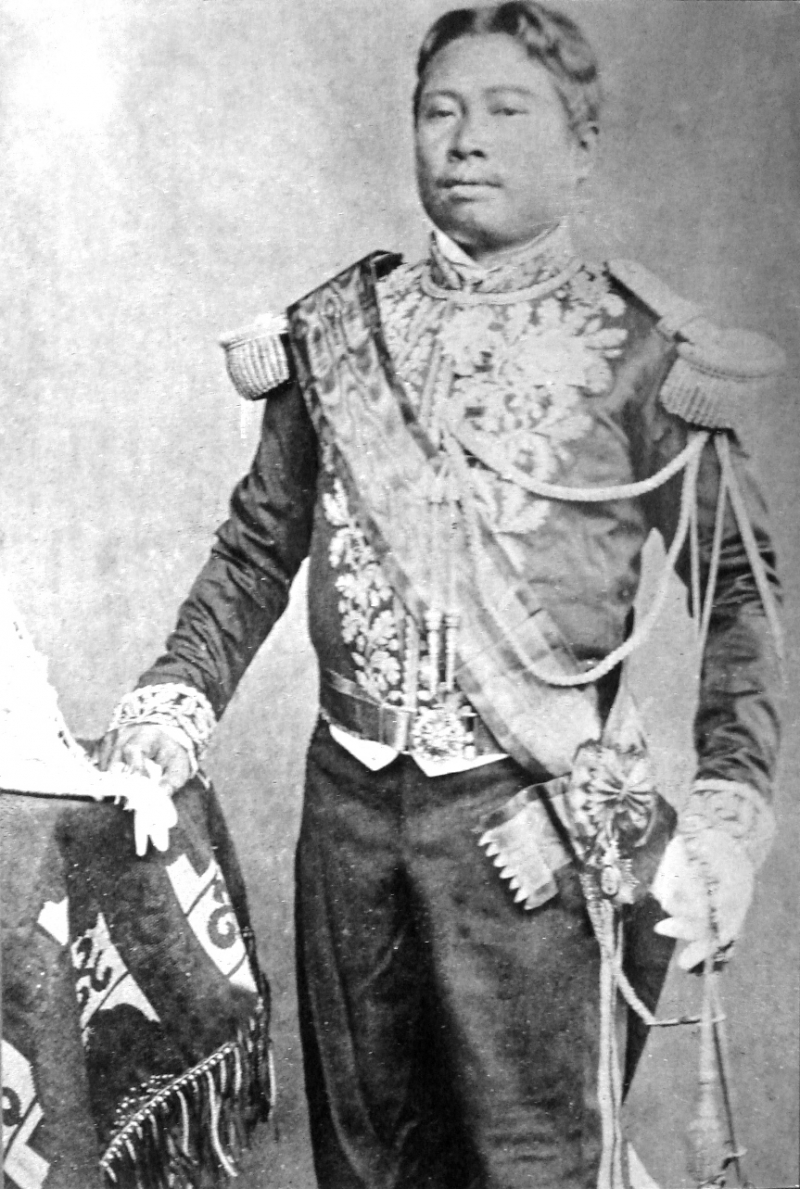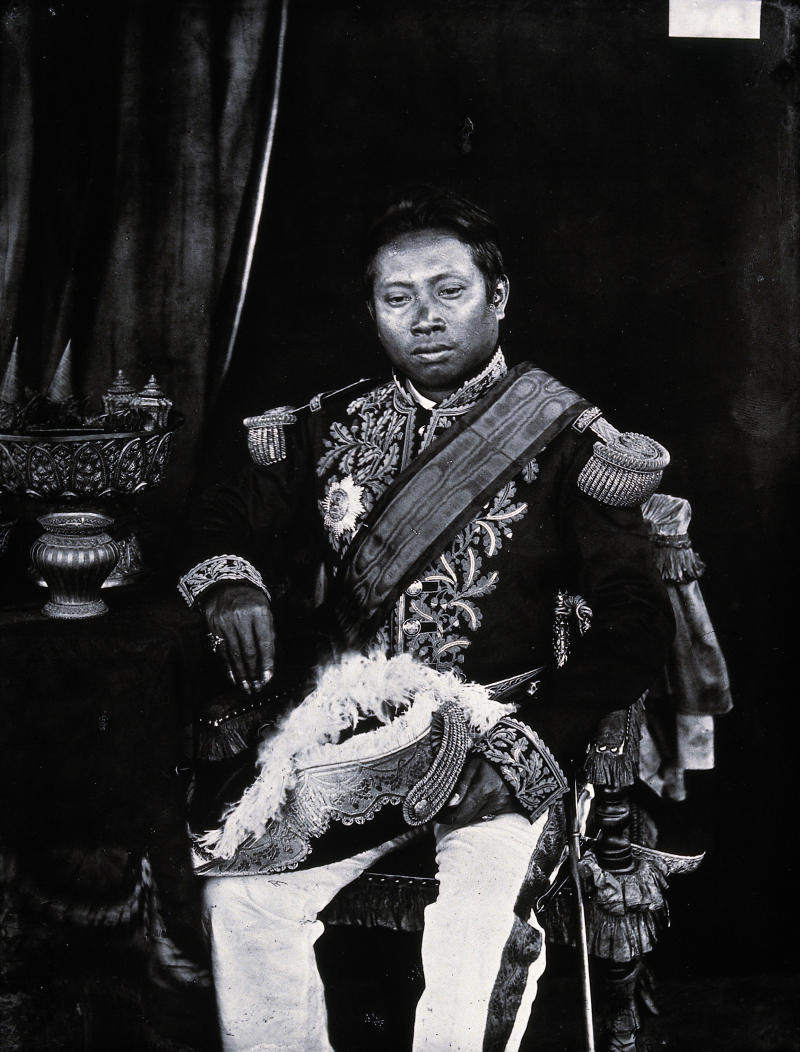Norodom of Cambodia
Norodom (3 February 1834 - 24 April 1904) was King of Cambodia from 19 October 1860 to his death on 24 April 1904. He was King Ang Duong's eldest son and a half-brother to Prince Si Votha and King Sisowath. He was elected to the throne in 1860, but he was not crowned until 1864 because Siam held the royal regalia (the royal crown and other artefacts). He signed a treaty with France in 1863, giving France control over Cambodia's foreign relations in exchange for personal protection from his enemies. Although the treaty preserved Cambodian independence, French control over Cambodian internal affairs grew steadily until the end of his reign (full independence was not restored until 1953). In terms of verifiable exact dates, his reign of 43 years and 188 days is the longest in Cambodian history. Sisowath, his half-brother, succeeded him after his death.
He is the ancestor of the House of Norodom, Cambodia's ruling royal house since 1941.
King Norodom was remembered for his love and appreciation of the arts. He oversaw the construction of the Silver Pagoda in 1892, as well as the consecration of Wat Oudong on June 6, 1875. When Norodom took the throne in 1860, classical dance regained some of its ancient clout, and it quickly became a high honor for court officials, ministers, and senior dignitaries to have their children admitted to the palace's school of dancing.
Norodom went on an official visit to Hong Kong, Manila, and Singapore in 1872. The King was so impressed by the Filipinos' musical abilities that he decided to send some musicians back to Cambodia to teach modern music. Norodom's generosity drew artists from all over the world to Cambodia, where they were always welcomed at the royal palace and court. Because the majority of them had a strong interest in the Royal Ballet, they were given every opportunity to learn Khmer music and dance.
The Royal Khmer Navy was established for territorial protection under King Norodom.










